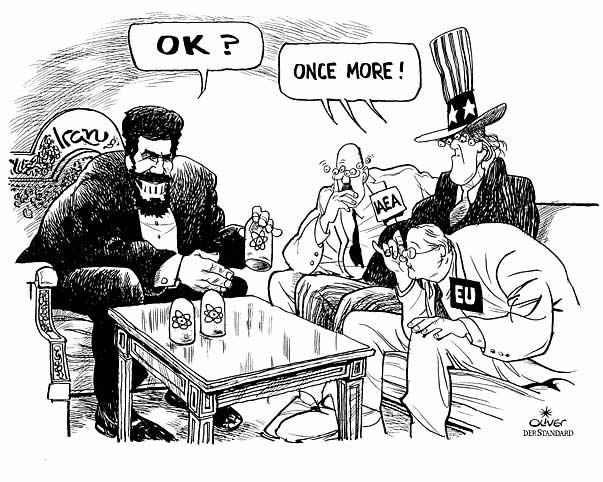Thursday, May 18, 2006
Sunday, May 14, 2006
Re-engineering Utopian Archaeologies

Utopia has always been a political issue, an unusual destiny for a literary form:
yet just as the literary value of the form is subject to permanent doubt, so also its political
status is structurally ambiguous. The fluctuations of its historical context do nothing to
resolve this variability, which is also not a matter of taste or individual judgment ...
Paradoxically, this exercize in pure Utopian formalism has brought us closer to
present-day political realities and contingencies than seems altogether desirable. Thus in
order to win back some degree of conviction, the content of the Utopian vision must seem
plausible (as Aristotle suggested about the tragic plot) without at all having to be
possible. We here return to the old generic problem that has been with us since the
beginning of this book: as a form, Utopia must be distinct from political reality; it must
offer a kind of mimesis of the political platform or manifesto while retaining, as it were,
its aesthetic distance. It must be marked as Utopian and thereby as partaking in a specific
and very special kind of aesthetic unreality: otherwise it falls into the world and,
particularly if realized, spells the end of Utopias in the way wryly distinct from the usual
prognoses of their current disappearance.
What can then today be the function of so ambiguous an entity as Utopia, if not as
a forecast of political and empirical possibilities?

... the secret message of all Utopias, present, past, and future:
"Are you really in danger?"
"Yes." His big head nodded in cordial agreement.
"You may fail us."
"Me? How?"
"You of your time. You individually may fail to understand us or
to struggle in your own life and time. You of your time may fail to
struggle altogether… We must fight to exist, to remain in
existence, to be the future that happens, That’s why we reached
you."
===>Marge Piercy, Woman on the Edge of Time (NY, 1976), pp. 197-198.

Cultural Fictions II
The Centre for Cultural Studies at Goldsmiths is hosting a conference on the significance of science fiction for disciplines and practices associated with cultural studies, to be held on 15-16th June, 2006. In particular, we will be asking whether sci-fi’s privileged relationship to alterity – e.g. in the forms of the alien, the non-human and above all the future – is what makes it so attractive to politically and philosophically oriented research and other contemporary artistic practices.
In addition to the speakers named below (who more than justify the non-entrance fee on their own, I'm sure you'll agree), Steve 'Kode 9' Goodman, Infinite Thought and me should also be giving papers.
===>K-Punk: Cultural Fictions at Goldsmiths

Paradoxically, the older Marxist traditions, drawing uncritical lessons from Marx
and Engels’ historical analyses of Utopian socialism in The Communist Manifesto
, andalso following Bolshevik usage
, denounced its Utopian competition as lacking anyconception of agency or political strategy, and charactered Utopianism as an idealism
deeply and structurally averse to the political as such. The relationship between Utopia
and the political, as well as questions about the practical-political value of Utopian
thinking and the identification between socialism and Utopia, very much continue to be
unresolved topics today, when Utopia seems to have recovered its vitality as a political
slogan and a politically energizing perspective.

Indeed, a whole new generation of the post-globalization Left – one which
subsumes remnants of the old Left and the New Left, along with those of a radical wing
of social democracy, and of First World cultural minorities and Third World
proletarianized peasants and landless or structurally unemployable masses – has more
and more frequently been willing to adopt this slogan, in a situation in which the
discrediting of communist and socialist parties alike, and the skepticism about traditional
conceptions of revolution, have cleared the discursive field. The consolidation of the
emergent world market – for this is really what is at stake in so-called globalization – can
eventually be expected to allow new forms of political agency to develop. In the
meantime, to adapt Mrs. Thatcher’s famous dictum, there is no alternative to Utopia, and
late capitalism seems to have no natural enemies (the religious fundamentalisms which
resist American or Western imperialisms having by no means endorsed anti-capitalist
positions). Yet it is not only the invincible universality of capitalism which is at issue:
tirelessly undoing all the social gains made since the inception of the socialist and
communist movements, repealing all the welfare measures, the safety net, the right to
unionization, industrial and ecological regulatory laws, offering to privatize pensions and
indeed to dismantle whatever stands in the way of the free market all over the world.
What is crippling is not the presence of an enemy but rather the universal belief, not only
that this tendency is irreversible, but that the historic alternatives to capitalism have been
proven unviable and impossible, and that no other socio-economic system is conceivable,
let alone practically available. The Utopians not only offer to conceive of such alternate
systems; Utopian form is itself a representational meditation on radical difference, radical
otherness, and on the systemic nature of the social totality, to the point where one cannot
imagine any fundamental change in our social existence which has not first thrown off
Utopian visions like so many sparks from a comet.
The fundamental dynamic of any Utopian politics (or of any political Utopianism)
will therefore always lie in the dialectic of Identity and Difference
iv , in the degree towhich such a politics aims at imagining, and sometimes even at realizing, a system
radically different from this one. We may in this follow Olaf Stapledon’s space-and-time
travelers, who gradually become aware that their receptivity to alien and exotic cultures is
governed by anthropomorphic principles:
At first, when our imaginative power was strictly limited by
experience of our own worlds, we could make contact only with
worlds closely akin to our own. Moreover, in this novitiate stage
of our work we invariably came upon these worlds when they were
passing through the same spiritual crisis as that which underlies the
plight of
Homo sapiens today. It appeared that, for us to enter anyworld at all, there had to be a deep- lying likeness or identity in
ourselves and our hosts.
[===>Olaf Stapledon, The Last and First Men/Star Maker (NY, 1968), p. 299.]
Stapledon is not strictly speaking a Utopian, as we will see later on; but no Utopian writer
has been quite so forthright in confronting the great empiricist maxim, nothing in the
mind that was not first in the senses. If true, this principle spells the end, not only of
Utopia as a form, but of Science Fiction in general, affirming as it does that even our
wildest imaginings are all collages of experience, constructs made up of bits and pieces
of the here-and-now: "When Homer formed the idea of Chimera, he only joined into one
animal, parts which belonged to different animals; the head of a lion, the body of a goat,
and the tail of a serpent."
vi On the social level, this means that our imaginations arehostages to our own mode-of-production (and perhaps to whatever remnants of past ones
it has preserved). It suggests that at best Utopia can serve the negative purpose of
making us more aware of our mental and ideological imprisonment (something I have
myself occasionally asserted
); and that therefore the best Utopias are those that fail themost comprehensively ...
Archaeologies of the Future : The Desire Called Utopia and Other Science Fictions

Sunday, May 07, 2006
Iran Crisis: Philosophers Unite! And On Yer Spivak Bikes!

This is not about stark existential choices, this is not about philosophers choosing to interpret the world as opposed to philosophers trying to change it; it is about systematic and ruthless dialogics [origin: The Pedagogy of The Oppressed] ...

BBC News confirms the bad news circulating in the past few days. Iranian-Canadian philosopher Ramin jahanbegloo has been arrested. On charges of spying and posing a security threat, Fars News adds. Kayhan also furthur elaborates.
Academic and philosopher Ramin Jahanbegloo, who has joint Iranian and Canadian citizenship, was arrested on 27 April at Tehran's Mehrabad Airport. He is now believed to be held incommunicado in Evin Prison, in Tehran, where he is at risk of torture or ill-treatment. There are unconfirmed reports that he is being held in the hospital wing. He may be a prisoner of conscience, detained solely on account of the peaceful exercise of his right to freedom of expression.
----------------------------------------------------------------------------------------------
This is extremely disturbing, and evidence of the sheer paranoia that has overtaken the Iranian regime in response to the US/Israel's plans to invade the country. And, tragically, it's going to get worse, with Iran now treating intellectuals, artists and dissidents much like the US treatment of "illegal combatants" in numerous secretive prison camps.
I briefly met Jahanbegloo a few years ago when he was giving a talk over here, and my sentiments very much echo those of Iranian-Canadian Hoder:
What I liked about him was his ability to talk about theory without making you feel stupid, his casual attitude towards the group (everyone was calling him by his first name at his own request, which is quite unusual among Iranians who have an obsession with long titles and formal respect.) His energy in persuading everyone to work in the group was admirable. So was his positive energy.
Last time I saw him was last June in Iran. It was a big surprise. He was married and they were expecting a baby. He seemed very proud of returning to Iran and starting a family life.
What's even more worrying is that there are now unconfirmed reports [CBS News] that Jahanbegloo has been transfered to a hospital, according to a close friend, though no more detail is available yet.
Jahanbegloo has published writings on Hegel, Gandhi, and Martin Luther King, and has interviewed Paul Ricoeur, Jurgen Habermas, and Isaiah Berlin: 
It's a real pity that Chomsky never managed to visit him in Iran, following this interview with Jahanbegloo at MIT just before his move back to Tehran in 2002:
Ramin Jahanbegloo: I was going to ask you to visit Iran. When will we have the pleasure of having you among us in Iran. I am sure that the Iranian scholars would love to have an open discussion with you?
Noam Chomsky: Thank you for the invitation, but I can't promise you the exact date. It's not easy to work out such an attractive invitation with all these files I am working on. But I will come to Iran sooner or later.  Ramin Jahanbegloo: Talking about the Middle East, how do you see the future of the Iranian-American relations? What could the citizens of the two countries do to ameliorate the relations between the two countries?
Ramin Jahanbegloo: Talking about the Middle East, how do you see the future of the Iranian-American relations? What could the citizens of the two countries do to ameliorate the relations between the two countries?
Noam Chomsky: I think the citizens of both countries have a common interest in changing the harmful policies in their countries. Of course they deal with it as people always can, I mean by setting solidarity relations to the extent that it is possible. I think Americans and Iranians can create these relation networks through all kinds of communications such as science, culture, sports, intellectual visits, trade etc. Us policy is interesting in this case. I mean practically always foreign policy is a clear reflection of primary economic interests. But this is a case where they diverge. So if you took a look at the energy corporations in the US, most of them are in favor of reintegrating Iran into the dominant global system and have tried to do so. But the US government is walking them, which is quite unusual. Usually it mainly supports their interests in the region. I think you can imagine the reasons when you compare to other cases. There is a very important principle of statecraft which is called "establishing credibility". What that means is that everybody should be terrified of you. Mafia understands this concept very well. If you are a Mafia Don, it is not enough to have people do what you say; they have to be afraid of you. So if a storekeeper doesn't pay protection money you just don't go and get the money, you make an example of him so that everyone else understands. That's establishing credibility. If you look at the official reasons for bombing Serbia in 1999, it was to establish credibility. They call it "NATO credibility" but that means of course "US credibility". I mean that people should know that you are the boss or otherwise you get smashed. Now let us go to Iran. Iran tried in 1953 to take control of its own resources. That ended up with a coup d'etat. The Shah was a very loyal client of the US and the US loved him. There was a survey on the violations of human rights in Iran which was published by a journalist of the New York Times. Well, when you look at this report it mentions that from 1953 to 1979 the US government believed that there were no human rights violations in Iran. When Carter went to Iran in 1978 he told the Shah how impressed he was by the degree that the Iranians loved him. I mean Iran was just fine as long as it was doing what the US wanted. But in 1979 Iran broke the rules. It pulled out and turned independent and that has to be punished. Even if the reformists could succeed and wanted to re-integrate Iran back into the system they would probably be prevented from doing it. Because the US wants to make an example of Iran to show other people in the Middle East that they can't do these kind of things. You don't break ranks and disobey the orders of the master. That's credibility and I think a lot of policies are driven by that. It is hard to explain on other grounds. It's for example very counterproductive on the economic level.  I'm sincerely hoping that a sufficient number of Western intellectuals (Chomsky, Zizek, you, etc) and well-placed politicians (Galloway, Benn, etc) with a proper, balanced understanding of the current Iranian crisis will, along with Iranian artists and intellectuals [especially those whom I know, including Kiarostami and Panahi], seriously rally and lobby the Iranian authorities to release Jahanbegloo as soon as possible ... I'm currently bombarding the Iranian Embassy in Ireland with assorted documentation ...
I'm sincerely hoping that a sufficient number of Western intellectuals (Chomsky, Zizek, you, etc) and well-placed politicians (Galloway, Benn, etc) with a proper, balanced understanding of the current Iranian crisis will, along with Iranian artists and intellectuals [especially those whom I know, including Kiarostami and Panahi], seriously rally and lobby the Iranian authorities to release Jahanbegloo as soon as possible ... I'm currently bombarding the Iranian Embassy in Ireland with assorted documentation ...
Here is a list of Iranian Embassies and Consulates worldwide worth lobbying ASAP:
Iranian Embassy in Ottawa, Canada
Embassy of the Islamic Republic of Iran in Ottawa, Canada
245 Metcalfe St.
Ottawa, Ontario
K2P 2K2 Canada
City: Ottawa
Phone: (613) 235-4726
Web Site: http://www.salamiran.org/
Office Hours: Monday to Friday 9:00 a.m. to 4:30 p.m.
Iranian Embassy in Addis Ababa, Ethiopia
Embassy of Iran in Addis Ababa, Ethiopia
P.O.Box : 70488
Addis Ababa
Ethiopia
City: Addis Ababa
Phone: 200794 - 712012
Web Site: http://www.telecom.net.et/~iranet/
Iranian Embassy in Jakarta, Indonesia
Embassy of the Islamic Republic of Iran in Jakarta, Indonesia
Jl. HOS Cokroaminoto 110, Menteng,
Jakarta 10310
City: Jakarta
Phone: +62-21-331378 or 33139162-21-3107860
Fax: +62-21-3107860
Web Site: http://www.iranembassy.or.id/
Iranian Embassy in Dublin, Ireland
Embassy of the Islamic Republic of Iran
72 Mount Merrion Ave.
Blackrock Co.
City: Dublin
Phone: (003531) 2885881-2880252-2882967
Fax: (003531) 2834246
Web Site: http://www.iranembassy.ie
Email: IranEmbassy@indigo.ie
Iranian Embassy in Oslo, Norway
Embassy of the Islamic Republic of Iran in Oslo, Norway
Drammens veien 88 E
0244 Oslo
Norway
City: Oslo
Phone: (+47) 23 27 29 60
Fax: (+47) 22 55 49 19
Office Hours: Visiting hours: Monday, Wedensday and Friday From 09:00 till 12:00 Visiting hours: Monday, Wedensday and Friday From 09:00 till 12:00
Iranian Embassy in London, United Kingdom
Embassy of the Islamic Republic of Iran in London, England (UK)
16 Prince's Gate,
London SW7 1PT
City: London
Phone: (44) 020-7225 3000
Fax: ( +44)2075894440
Web Site: http://www.iran-embassy.org.uk/
Email: info@iran-embassy.org.uk
Office Hours: 9:00-13:00 Monday to Thursday and 9:00-12:30 Friday
Iranian Consulate in Washington DC, United States
Iranian Interests Section
2209 Wisconsin Avenue NW,
Washington DC 20007
City: Washington DC
Phone: (202) 965-4990
Office Hours: 7:30 am - 3:30 pm Monday through Friday except on Wednesdays and holidays.

[Waiting for a True Miracle, Mr Zizek, the impossible irruption of the Real? Here's your - death-driven - chance ...] ...
UPDATE:
[1] A group of Tehran University students have launched a blog for Jehanbegloo's release from detention (Persian), while another blogger has just established a Release Ramin Jahanbegloo (English) blog.
[2] Shahram Kholdi, a Manchester, UK based blogger, has written in detail about Jehanbegloo.
[3] Detail from first newspaper report confirming arrest:
 [4] Detained scholar unharmed (Ottawa Citizen)
[4] Detained scholar unharmed (Ottawa Citizen)
Iranian-Canadian told wife he's 'OK' and hopeful of release from Tehran prison
Sunday, May 07, 2006
Ramin Jahanbegloo, the Iranian-Canadian scholar being held prisoner in Tehran, has not been hospitalized or tortured and is hopeful he will soon be free, according to a friend and colleague.
"To the extent that I know ... he has been OK and he has anticipated that he will be released -- and this is hopeful on his behalf -- shortly," said Mohamad Tavakoli, a history professor at the University of Toronto.
Mr. Jahanbegloo called his wife Friday night and reported that he is safe and hasn't been physically harmed, Mr. Tavakoli said. He said he learned of Mr. Jahanbegloo's well-being from a close network of friends and family who are exchanging information.
There have been numerous media reports that Mr. Jahanbegloo had been hospitalized, stoking fears that he had been tortured within the Iranian prison. While Mr. Jahanbegloo did visit a clinic in captivity, it's because he has suffered from low blood sugar and not because he has been harmed, Mr. Tavakoli said.
"To the extent that we know is that he has visited a clinic in prison," he said.
The former University of Toronto professor has been held in prison without charges for almost two weeks. Mr. Jahanbegloo was in Iran working as the director of Tehran's Cultural Research Bureau, a non-governmental organization.
A noted scholar who has also taught at Harvard and studied at the Sorbonne in Paris, he was taken prisoner after writing an article in a Spanish newspaper criticizing Iranian President Mahmoud Ahmadinejad for denying the Holocaust.
[Canadian] Foreign Affairs Minister Peter MacKay has said the government is having difficulty making progress with Iranian officials to obtain Mr. Jahanbegloo's release.
His case is a reminder of the case of Zahra Kazemi, a Canadian-Iranian photojournalist who was tortured and killed in 2003 at the notorious Evin prison -- the same prison in which Mr. Jahanbegloo is being held.
=====>Source: Ottawa Citizen
[5] Amnesty International's Appeal For Urgent Action
RECOMMENDED ACTION :
Please send appeals to arrive as quickly as possible in Persian, Arabic, English or your own language. Use this sample letter, or create one of your own:
a. expressing concern for the safety of Ramin Jahanbegloo, who is detained incommunicado in Evin prison;
b. seeking assurances that he is not being tortured or ill-treated;
c. seeking full details of the reasons for his arrest, including any charges that may have been brought against him;
d. calling on the authorities to release him immediately and unconditionally if he is not to be charged with a recognizably criminal offence and given a prompt and fair trial.
WRITE TO:
Supreme Leader of the Islamic Republic :
His Excellency Ayatollah Sayed ‘Ali Khamenei,
The Office of the Supreme Leader
Shoahada Street, Qom, Islamic Republic of Iran
Email: info@leader.ir istiftaa@wilayah.org
Head of the Judiciary :
His Excellency
Ayatollah Mahmoud Hashemi Shahroudi
Ministry of Justice,
Park-e Shahr,
Tehran, Islamic Republic of Iran
Email: via Judiciary website: Iranjudiciary.org/feedback_en.html Salutation: Your Excellency
COPIES TO:
President:
His Excellency Mahmoud Ahmadinejad
The Presidency,
Palestine Avenue,
Azerbaijan Intersection,
Tehran, Islamic Republic of Iran
Fax: Via Foreign Ministry: +98 21 6 674 790 (mark: "Please forward to H.E. President Ahmadinejad")
Email: dr-ahmadinejad@president.ir
via website: www.president.ir/email



